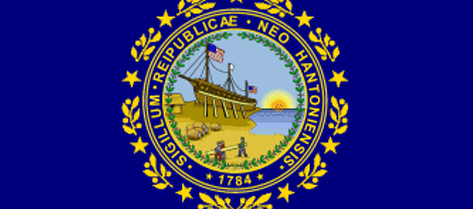State of
New Hampshire
STATUTES: New Hampshire Revised Statutes Annotated
New Hampshire compulsory attendance law (§193.1) requires that all children, ages 6-15 (inclusive), must attend public school or "an approved private school during all the time the public schools are in session."
Although New Hampshire has not statutory provisions expressly defining a Released Time program, section 193.la permits the State Board of Education to approve "Dual Enrollment" programs. Full time attendance may be satisfied by attendance at more than one school and one of those schools may be nonpublic or religious.
EDUCATION REGULATIONS (Policy):
The State Board of Education is also authorized to issues "Regulations providing for shared or Released Time programs." (§193.1b). These statutes clearly seem to indicate that Released Time program s are only operating in a few districts where such a program has been authorized by voter approval. Each district has the discretion to establish their own guidelines for such programs.
CASES: Americans United for Separation of Church and State v. Paire, 359 F. Supp. 505 (1973)
Apparently certain types of dual enrollment agreements may be considered unconstitutional. In Paire, public school teachers were furnished to a parochial school to teach secular subjects in rooms leased to the school district by the parochial school for that purpose. The U.S. District Court held that such a dual enrollment agreement violated the First Amendment by fostering excessive governmental entanglement with religion.
Such a program would be valid if the public school teachers only taught in the public schools and the private school teachers only taught in the parochial schools. ATTORNEY GENERAL OPINIONS: NoneFCRTM RECOMMENDATIONS:
Like your state, many do not have specific laws or guidelines concerning Released Time. The absence of a specific law does not necessarily prohibit Released Time programs. In fact, it may allow a wider range of Released Time programs. For example, it is possible to offer Released Time classes as an off-campus elective class on the High School or Junior High level, which students take daily. This is being done in states such as Georgia, Florida, Utah, Arizona, and Idaho.
The particular challenge in your state is that in the absence of a specific statute, you will need to conduct research into the legal background of Released Time at the federal level (FCRTM can help!), and how decisions are made within your school system. The majority of school districts would require approval at the school board level, but many are moving to "site-based management,' which would perhaps allow individual school principals to approve a Released Time program. Once your research is complete, you will need to approach the appropriate decision-maker(s) with a proposal for a Released Time class.
Even with the Supreme Court decision of 1952 (Zorach vs. Clauson), we must remember that approval for a Released Time program is a privilege, not a right. School principals and school boards may accommodate a Released time program, but they are not required to do so. Experience teaches us that a carefully crafted approach, coupled with a positive relationship with school officials will usually open the doors for a Released Time program.
Information provided by:
The Fellowship of Christian Released Time Ministries
5722 Lime Ave. ˜ Long Beach, CA 90805
Contact Us